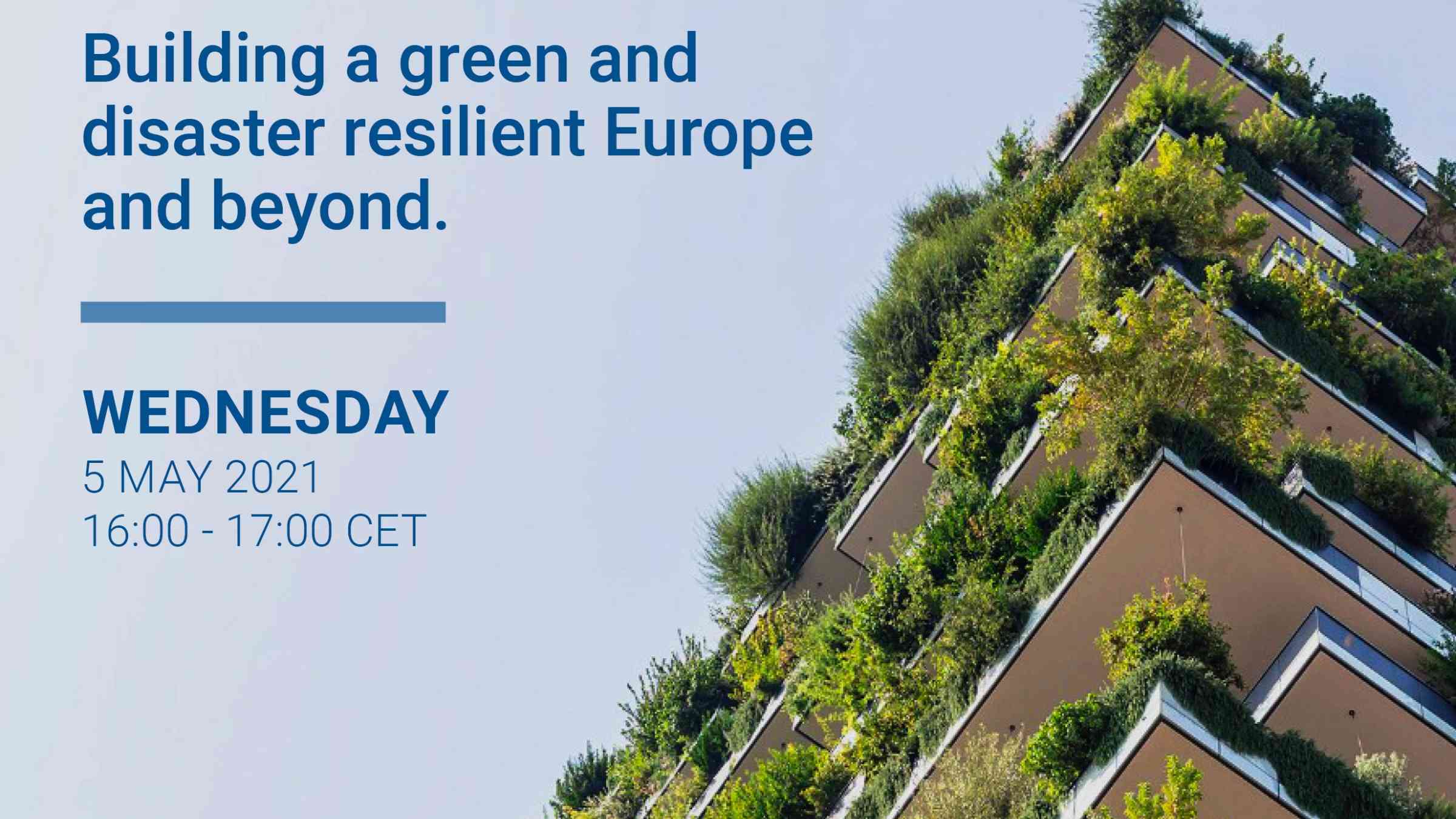European Parliamentarians set out to strengthen disaster resilience

Brussels – On 5 May, the United Nations Office for Disaster Risk Reduction (UNDRR) Regional Office for Europe and UN Special Representative of the Secretary-General for Disaster Risk Reduction, Ms. Mami Mizutori, together with Members of the European Parliament Ms. Sirpa Pietikäinen, Ms. Lídia Pereira and Ms. Monica Silvana Gonzalez, held a discussion on building greater resilience in Europe and beyond.
Members of the European Parliament play a key role in leading the change towards a resilient future in the face of growing climate impacts felt worldwide. This is important as the latest figures show that in the last 20 years both the number of recorded disasters and resulting economic losses almost doubled. The discussion highlighted the urgent need to invest in prevention to save lives and looked at how the EU is actively implementing the Sendai Framework priorities.
MEP Sirpa Pietikäinen highlighted that comparing the cost of investing in disaster risk reduction (DRR) to that of inaction is crucial to understand the importance of investing in prevention. A science-based approach should be adopted when it comes to implementing the Sustainable Development Goals and the Sendai Framework for Disaster Risk Reduction 2015-2030 (Sendai Framework).
MEP Lídia Pereira emphasised that economic growth needs to address climate adaptation and disaster resilience. Infrastructure investments in particular need to be resilient. With the $80 trillion to be invested in infrastructure globally, the investments must go through a robust screening process to ensure they are disaster resilient.
MEP Monica Silvana Gonzalez underlined that people and communities can better resist disasters if the risk of their occurrence and vulnerabilities to impacts are reduced, a point she stresses in her report on the impacts of climate change on vulnerable populations in developing countries. She further noted that a greater commitment to the Sendai Framework is necessary and that it is important to look at how EU resources can be better invested in disaster risk reduction.
MEP Dragoș Pîslaru, from his point of view as rapporteur of the EU recovery instrument to COVID 19 (Recovery and Resilient Facility), reflected that the Sendai Framework is important for recovery policies and noted that it is important to cooperate to make sure we are better prepared in the future.
Ms. Mami Mizutori, UN Special Representative of the Secretary-General for DRR, emphasized that now is the moment when we can put words into action, to build a more resilient future, so that every decision you make in forming policies and investing are risk-informed and have a “think resilience” approach. The participating Members of the European Parliament all expressed support to continue this momentum and work together towards building a more resilient future.